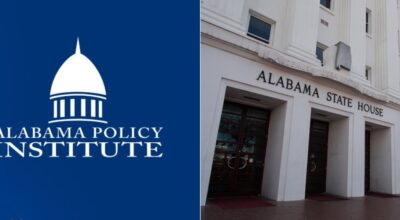What does praying for healing mean?
Published 5:47 pm Friday, February 6, 2015
I am often asked about my beliefs surrounding healing prayer and what, or if God actually does when we pray for the sick and the dying. Some have suggested it senseless to pray for healing of the terminally ill or dying because they are going to die any way. Sometimes the sick get sicker and at other times they are made well, why does God heal some and not all? In all honesty, there aren’t clear answers to these questions. At the same time, I hope what I am about to share will be helpful.
Our church is mostly reading the Gospel of Mark on Sundays for the next 10 months or so. Mark’s Gospel begins with John the Baptist preaching repentance and granting forgiveness of sins through baptism. Before the first chapter of Mark ends, we are given indicators or previews of Jesus’ earthly presence among us: John baptizing Jesus, Jesus going out into the wilderness, Jesus calling for repentance and claiming that the Kingdom of God has come near, Jesus calling the fishermen to become disciples, Jesus teaching with authority in the temple and healing the man with an unclean spirit, Jesus raising up Simon’s sick mother-in-law in her home and healing her, Jesus going away to a quiet place to pray and the disciples go looking for him, Jesus healing the leper who asks to made clean. Whew!
I don’t know about you but that seems like a lot of information to have included in the first chapter of the story of the Son of God. It seems Mark is determined to tell us everything at once. As I attempt to process all of this I am reminded of the old adage of trying to “drink water out of a fire hose.” A wild-eyed prophet, a wilderness experience, an exorcism in synagogues, a healing in a home and on the road on the way out of town: what could Jesus possibly have left to do wherever he lands next? Stay tuned, there’s more.
Before we move to chapter two, let’s revisit an underlying theme for all that is happening in chapter one. Within every subplot, there is a recurring theme: and that is the people in the Jordan River who are baptized by John, the fishermen who drop their nets and follow Jesus, the man whose unclean spirit is cast out as well as the amazed by-standers in the synagogue, Simon’s mother in law, who immediately begins to serve Jesus after she is healed, the leper who is made clean – all of these people have either glimpsed or experienced first hand the healing love of the Son of God.
Jesus moves among the people, challenges them, invites them to follow, teaches them with overwhelming authority and never hesitates to restore them to wholeness. This is the story of God’s interaction with us. Each and every one of us has at our deepest core an unmet need, a void that only God can fill. Jesus comes out of the wilderness, walks along the seashore, enters our temples and our homes and he heals us, restoring our souls to a wholeness that we cannot accomplish through our own designs or efforts.
Jesus never judges or evaluates our worthiness because we simply never would qualify. Jesus sees every one of us as those who desire to be made whole even when we can’t comprehend what that fulfillment should mean or look like. Just as Jesus responds to the needs of the possessed and the sick and the leper, he responds to us.
And Jesus calls us to come as we are and to trust that he knows what we need – this is the true and everlasting love of God and the ultimate healing he provides. What other kind of love would motivate one who was transforming lives by granting forgiveness of sins and baptizing them in the Jordan River to speak of one greater who is yet to come? What other kind of love would attract a person whose life seems to be content, mending nets and casting them into the sea as a member of a thriving family business? What other kind of love recognizes the leper, the outcast of society and makes them whole?
So, back to the question at the beginning of this writing: what happens when we pray for healing? Personally, I relate more to the fishermen on the seashore than I do the demoniac, the sick woman or the leper. I have dropped my nets and followed Christ because I don’t truly know exactly what my healing needs are, but I trust that God knows what my path to wholeness should be. I know that I will die one day regardless of the healing prayers that might be prayed for me and I am at total peace about this inevitable ending of my earthly life. I pray for the sick and the dying that they may experience this ultimate healing every day. Even though we experience heartbreak and separation that death brings to us all, prayers for healing assure us of God’s response and restoration to wholeness of our loved ones.
Whether we are like John the Baptist, the fisherman disciples, the demoniac, the sick woman or the leper, God responds to our desire for wholeness. When we acknowledge that we have a void that can only be filled by God, we begin the rest of our earthly journey in relationship with God that concludes with the eternal ultimate healing of God’s love and peace. I pray the same for each and every one of you. Take Care and God Bless.
By the Rev. Reid T. McCormick
McCormick is the Rector of St. Thomas Episcopal Church in Greenville.




